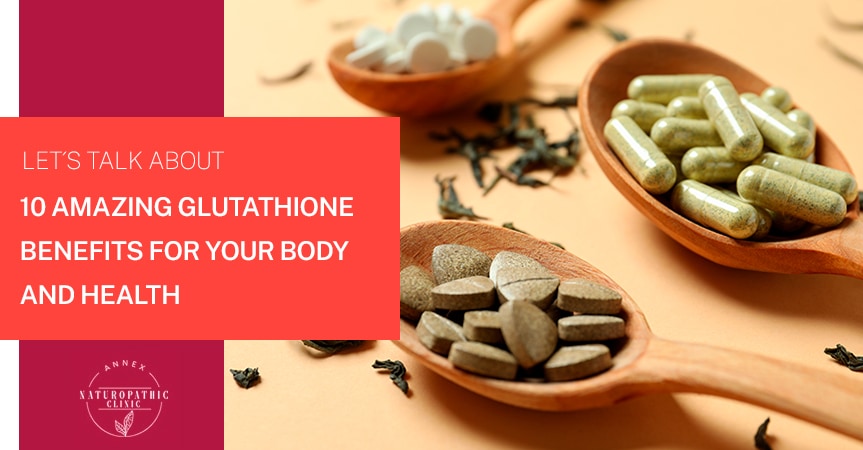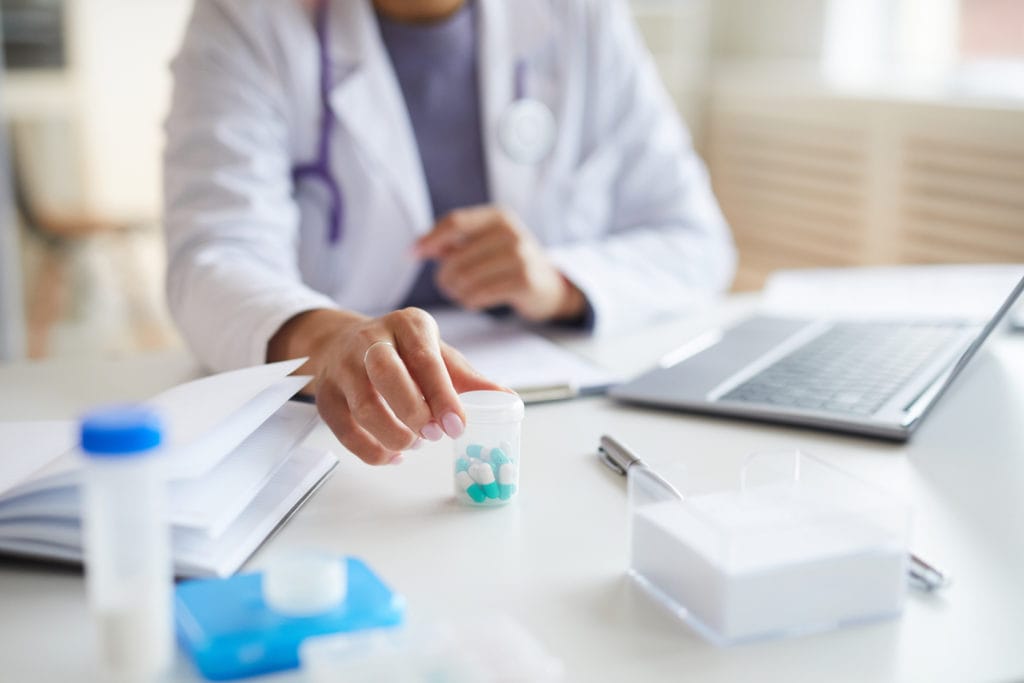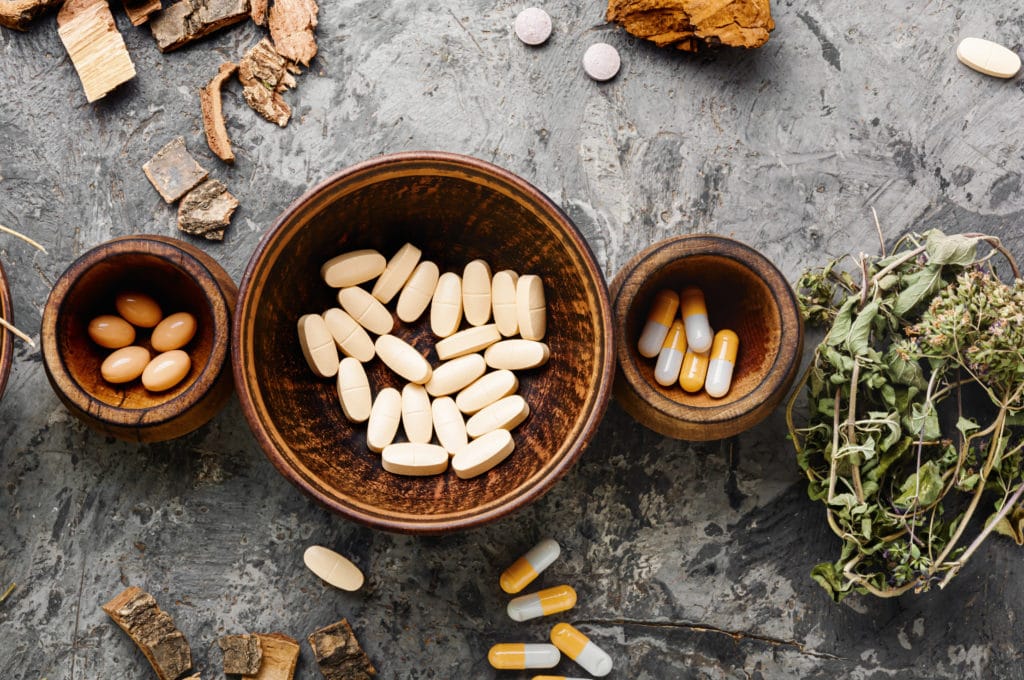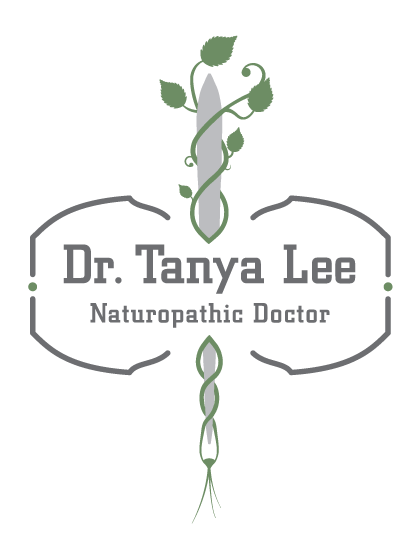Symptoms Of Estrogen Dominance

Please note we do not provide intravenous glutathione or glutathione injections at Annex Naturopathic Clinic, but we do offer nebulized (inhaled) glutathione treatments.
Glutathione is an essential molecule produced by your body. It acts as a powerful antioxidant and it’s involved in different bodily functions like the immune system and tissue repair. But what are the actual benefits of glutathione?
This compound has been the subject of intense study in the scientific community. We’ll take a deep dive to find out what exactly is glutathione, and what its true, proven benefits actually are. We’ll also discuss if boosting your glutathione levels is worth it and how to do it, as well as the side effects and risks attributed to glutathione supplementation. Read on to find out more.
What is glutathione?

Glutathione is essential to almost all living beings, from bacteria to humans. It’s made out of 3 non-essential amino acids, namely cysteine, glycine, and glutamic acid. These amino acids function as building blocks for proteins. As a bonus, glutamic acid transforms into glutamate which helps transfer information in the nervous system.
Glutathione is produced in almost every cell in your body and can be found in two forms: reduced and oxidized. The balance between these two forms is what determines if your cells are protected from oxidative stress. Studies show that a healthy cell should have over 100 times more reduced glutathione than its oxidized form.
As the most famous natural antioxidant, glutathione certainly has an impressive list of roles in the well-being of the human body:
- Pulls the reins on cell multiplication and cell death
- Gets rid of mercury from cells
- Helps the regeneration of vitamins E and C
- Acts as a detoxifying agent
- Helps with the metabolism of nutrients
- Keeps the immune system working properly
Numerous studies have shown that low levels of glutathione are associated with oxidative stress, which, in turn, plays a huge role in the onset or progression of many diseases. Some of the most discussed being Alzheimer’s disease, Parkinson’s disease, liver disease, cancer, heart attacks, seizures, and diabetes.
It all sounds ominous, but glutathione levels can be increased through dietary changes, oral, nebulized or intravenous supplementation. The aim is to boost the production of new reduced forms of glutathione to help fight off oxidative stress inside the cells.
What are the benefits of glutathione?

The benefits of glutathione are many and widespread. We’ll be touching on some of the most important ones that have a well-researched scientific background to support their claims.
1. Has antioxidant activity – it protects your body from oxidation
Oxidation is a natural process that occurs all the time in your body. It’s actually involved in complex processes like respiration. During oxidation, electrons are transferred between molecules, which leads to a change in the molecule’s structure and function. And that’s really bad news for your cells.
The body fights this excessive oxidation with the help of antioxidants. Glutathione acts as a protective shield, taking the damage and saving the surrounding cell components from oxidation. After this interaction, glutathione is transformed from its reduced form to its oxidized one.
When there is an imbalance between the oxidizing components and antioxidants, the cells suffer oxidative stress. To counteract this process, the body has to produce new molecules of glutathione.
2. Reduces cell damage in liver disease
The liver is an important organ with vital roles in detoxification and metabolism. Drugs, environmental factors, or dietary components can cause liver damage through oxidative stress. The liver protects itself from harmful oxidative reactions by producing glutathione inside its cells.
Animal studies have shown that mice with low levels of glutathione developed liver diseases. In human patients, glutathione has been used as a treatment for chronic liver disease, mostly by intravenous administration.
One clinical study has also shown the benefits of oral administration of glutathione. It is still unclear whether glutathione is degraded into its amino acid components during the digestive process or if it’s absorbed as a whole.
3. Improves insulin sensitivity
Diabetes occurs when the body doesn’t produce enough insulin, or when it can’t use the insulin it produces. According to the World Health Organization, in 2019, diabetes was the cause of 1.5 million deaths.
Oxidative stress can be caused by elevated levels of sugar in the blood (hyperglycemia), as well as insulin deficiency or resistance. This association plays an important role in the progression of diabetes. Low levels of glutathione can lead to increased oxidative stress and insulin resistance.
Studies have shown that dietary supplementation can improve glutathione production, reduce oxidative stress, and improve insulin sensitivity.
4. Reduces the symptoms of Parkinson’s disease
Parkinson’s disease is a well-known neurodegenerative disease with symptoms like motor function loss and cognitive decline, and the second most common neurodegenerative disease in the world.
Although the causes for Parkinson’s disease are not completely known, its progression results in a loss of certain neurons in the brain and other alterations that increase oxidative stress.
Unfortunately, the brain produces lower levels of glutathione than other cells in the body, and low levels of glutathione have been detected even in the early stages of Parkinson’s disease. Studies have shown that using glutathione for the treatment of this disease can improve motor function in patients, and have shown promising results in both animal trials and clinical studies on patients.
5. Reducing ulcerative colitis damage
Oxidative stress is one of the factors associated with inflammatory bowel diseases such as ulcerative colitis. Although the causes for these types of diseases are not fully understood, the role of oxidative damage is very well documented.
Antioxidant production is reduced in patients with inflammatory bowel diseases, even before they begin to develop any symptoms. As the most important antioxidant system, glutathione can be an important part of the therapeutic process by preventing cell damage.
In fact, replenishing glutathione levels may improve cell function in diseases like ulcerative colitis and prevent further cell damage by protecting against the harmful effects of oxidative stress.
6. May help reduce the risk of autoimmune diseases
An autoimmune disorder is a condition in which the body attacks itself. The immune system can’t make the difference between the body’s own cells and a pathogen, so it responds by creating an inflammatory process.
Inflammation is known to cause an increase in oxidative processes and some autoimmune diseases have been associated with an increase in oxidative stress and a decrease in glutathione levels.
Glutathione has an important effect on the immune system. It controls inflammation to a degree by stimulating or inhibiting the immune system response.
Raising glutathione levels could help protect against oxidative damage and reduce systemic complications. It could be beneficial in autoimmune diseases like psoriasis, rheumatoid arthritis, alopecia areata, multiple sclerosis, Systemic Lupus Erythematosus, and type 1 diabetes.
7. Increases mobility in peripheral artery disease
Occlusive peripheral arterial disease is caused by atherosclerosis, which is a buildup of fatty deposits in the artery. This, in turn, can narrow the arteries, leading to reduced blood flow.
Atherosclerosis affects the limbs, but more frequently the legs, and can cause pain, muscle cramps, and numbness. The symptoms are triggered by activities such as walking and tend to diminish or disappear when at rest.
A consequence of reduced blood flow is a lack of oxygen for the local cells. This causes cellular damage and increases oxidative reactions. The resulting oxidative stress could be managed with an appropriate level of antioxidant molecules.
One study shows that raising glutathione levels prolongs the patient’s pain-free walking distance, and improves local blood circulation.
8. Treating autism spectrum disorders
According to the World Health Organization, about 1 in 160 children has an autism spectrum disorder. Recent studies have shown that people diagnosed with this type of disorder have significantly lower levels of glutathione.
There is in fact a lot of evidence that points towards the importance of oxidative stress in the pathology of autism. A decrease in the antioxidant capacity of the brain may have functional consequences through cell damage, chronic inflammation, protein, and DNA damage.
One study has shown that oral and transdermal glutathione supplementation has a positive effect on glutathione levels. This may help readjust the balance between oxidizing factors and antioxidants in the brain.
9. Preventing aging
Aging is something everybody is concerned with. It affects every cell in the body, but the most visible effect is on the skin.
As we grow older, our cells produce less glutathione, which means that the antioxidant mechanism is lagging. Oxidative stress is a major factor that leads to cell aging. One way to slow this process down is to have an adequate level of glutathione.
Studies have shown that the supplementations of glutathione have positive effects like reducing wrinkles, improving skin elasticity, and regulating melanogenesis.
10. Improves athletic performance
Intense muscle activity leads to an increase in oxidative molecules, such as reactive oxygen and nitrogen species. As a response, muscles use glutathione to counteract the harmful oxidative effects.
Studies have shown that muscle fatigue can be delayed by boosting glutathione levels.
How can I boost my glutathione levels?
There are many factors that cause oxidative stress. These can be environmental, certain diseases, or even some food categories. One way to protect your cells from oxidative damage is to increase your antioxidant levels.
Boosting your glutathione levels with supplements
Taking your vitamins is important, but you should always do it responsibly and following medical advice. Some supplements have the potential of raising the body’s glutathione levels:
- Vitamin E – studies show that vitamin E levels are directly linked to glutathione levels, and supplementation of vitamin E significantly increases glutathione while also fighting against lipid peroxidation.
- Vitamin C – in controlled doses, vitamin C can stop glutathione depletion under stress conditions and increases the overall antioxidant status of the body.
- Vitamin B6 – in its biologically active form, this vitamin promotes the synthesis of glutathione.
- Selenium – studies show that selenium increases glutathione peroxidase levels. This is an enzyme that uses glutathione to lower oxidative damage in tissues, so selenium indirectly affects the antioxidative action of glutathione.
- Magnesium – supplementation of this mineral may provide antioxidant protection by elevation glutathione blood concentration
- Silymarin – a bioactive compound isolated from milk thistle, used mainly as an anti-hepatotoxic agent. Studies have shown that silymarin can increase glutathione and vitamin C levels.
- N-acetylcysteine – a precursor of the amino acid cysteine that increases glutathione concentration, and is frequently administered to patients infected with HIV.
Boosting Glutathione levels with the right food
Eating the right food is essential in maintaining a healthy body. This can also be said about maintaining good levels of glutathione.
Glutathione is made out of amino acids, so the main dietary influence over your glutathione levels will be your intake of protein. These proteins can be found in many types of food such as meat, eggs, and dairy products.
Another beneficial source is whey protein because it’s rich in cysteine. Studies show that a decrease in protein levels, even when they remain within safe levels, can lead to a decrease in glutathione levels and a reduction in antioxidant capacity.
Omega-3 fatty acids can also increase your glutathione levels, and studies show that its efficiency grows when it’s combined with vitamin E supplementation. Omega-3 can be found in fish, nuts, seeds (walnuts and chia seeds), and plant oils (flaxseed oil, canola oil).
Green vegetables, fortified cereals, and grain products are rich in vitamins like riboflavin which is essential in converting glutathione into its active, antioxidant form.
Foods that have a high quantity of vitamin E are also important in maintaining a high glutathione level. Some of the most important are almonds, peanuts, spinach, pumpkin, and red bell pepper.
Side Effects and Risks
Possible side effects that have been associated with the administration of glutathione are:
- Allergic reactions
- Bronchial constriction that may lead to trouble in breathing
- Bloating
- Abdominal cramps
- Itchiness
- Fatigue
- Thyroid dysfunction
- Kidney dysfunction
According to many clinical studies, side effects are very closely related to the dose of glutathione in supplements administration. It’s safe to say that supplementation of any kind should only be taken after consulting a medical professional.
Just remember that a glutathione-boosting diet does not pose any health risks for the consumer and might be the safest way to obtain good sources of glutathione.
Please note we do not provide intravenous glutathione or glutathione injections at Annex Naturopathic Clinic, but we do offer nebulized (inhaled) glutathione treatments.
Annex Naturopathic’s specialists can help you identify the best way to supplement your diet with glutathione.
Frequently Asked Questions About Glutathione
What does glutathione do to your skin?
Glutathione may have a positive effect on skin elasticity, wrinkle appearance, and melanogenesis. These effects are related to glutathione’s antioxidant properties that help protect against cell damage.
Is it safe to nebulize glutathione?
Nebulized glutathione is generally considered as ‘safe’, However, you should always consult with a physician before inhaling glutathione.
What does glutathione do to your face?
Glutathione is a natural antioxidant and detoxifying agent. It can regulate melatonin, leading to a more even skin tone, and can have a generally positive effect on skin elasticity and plumpness.
